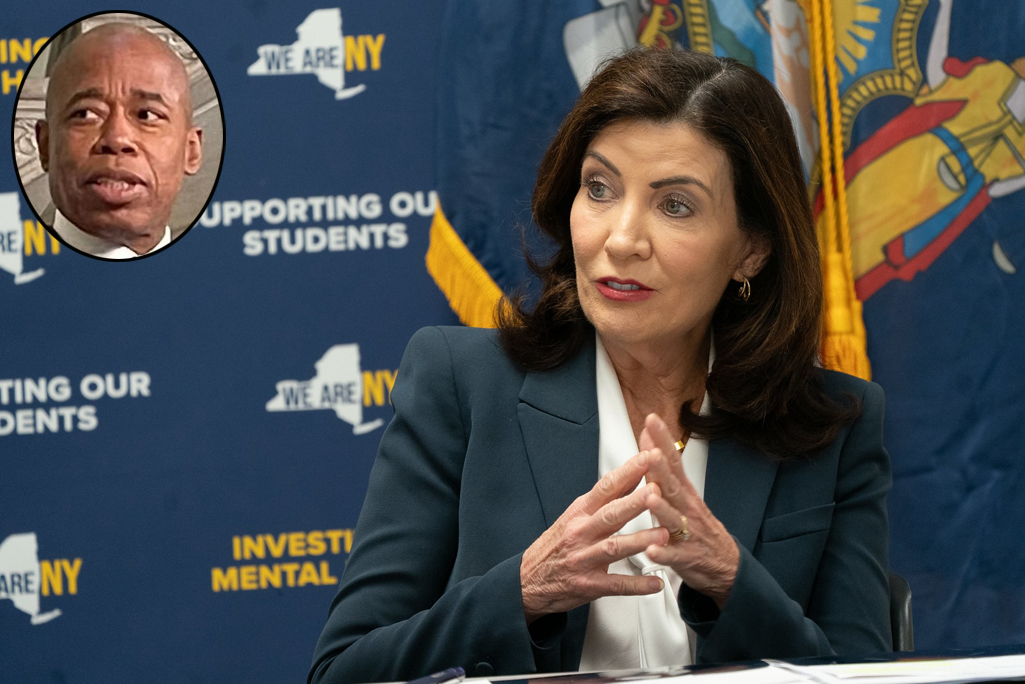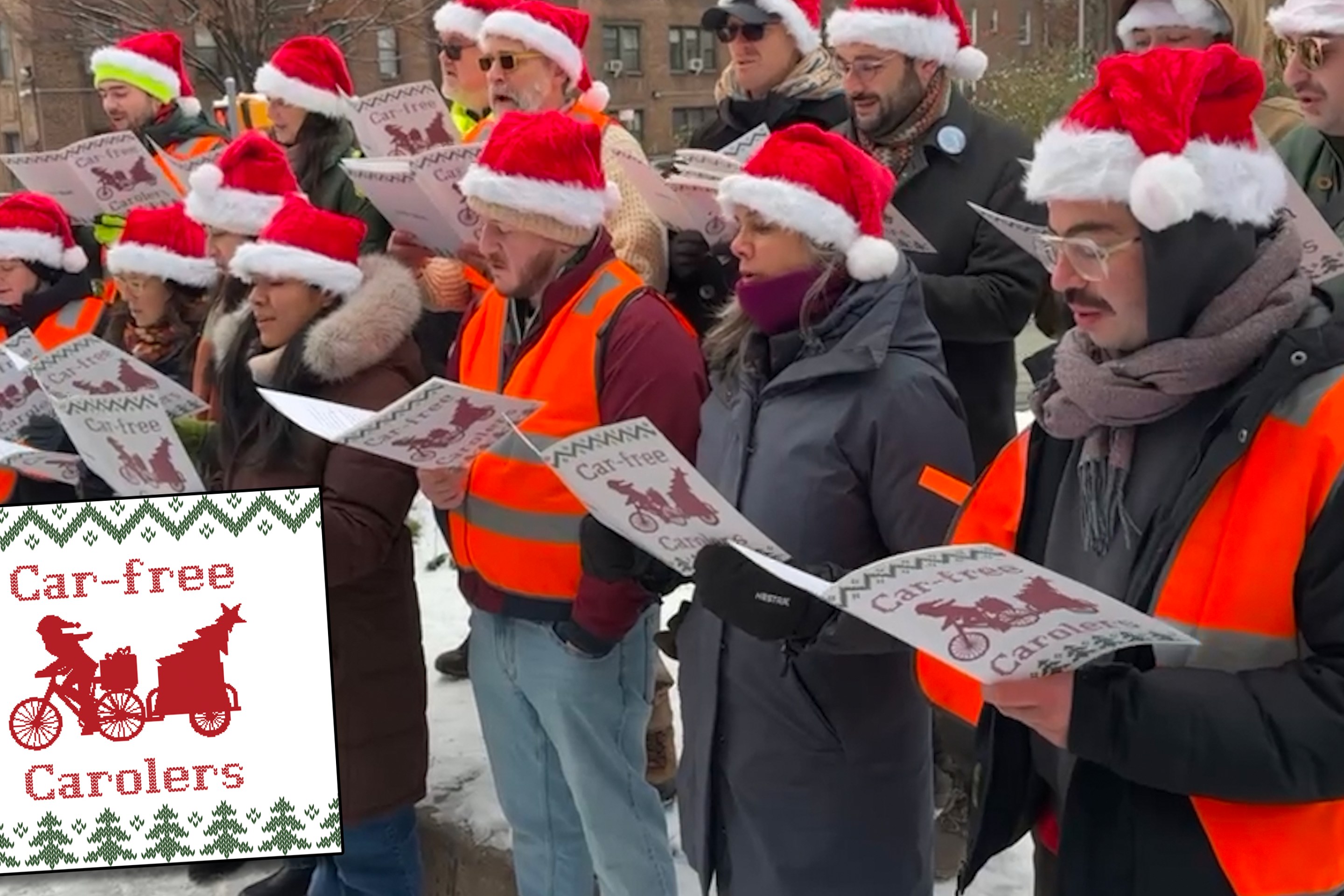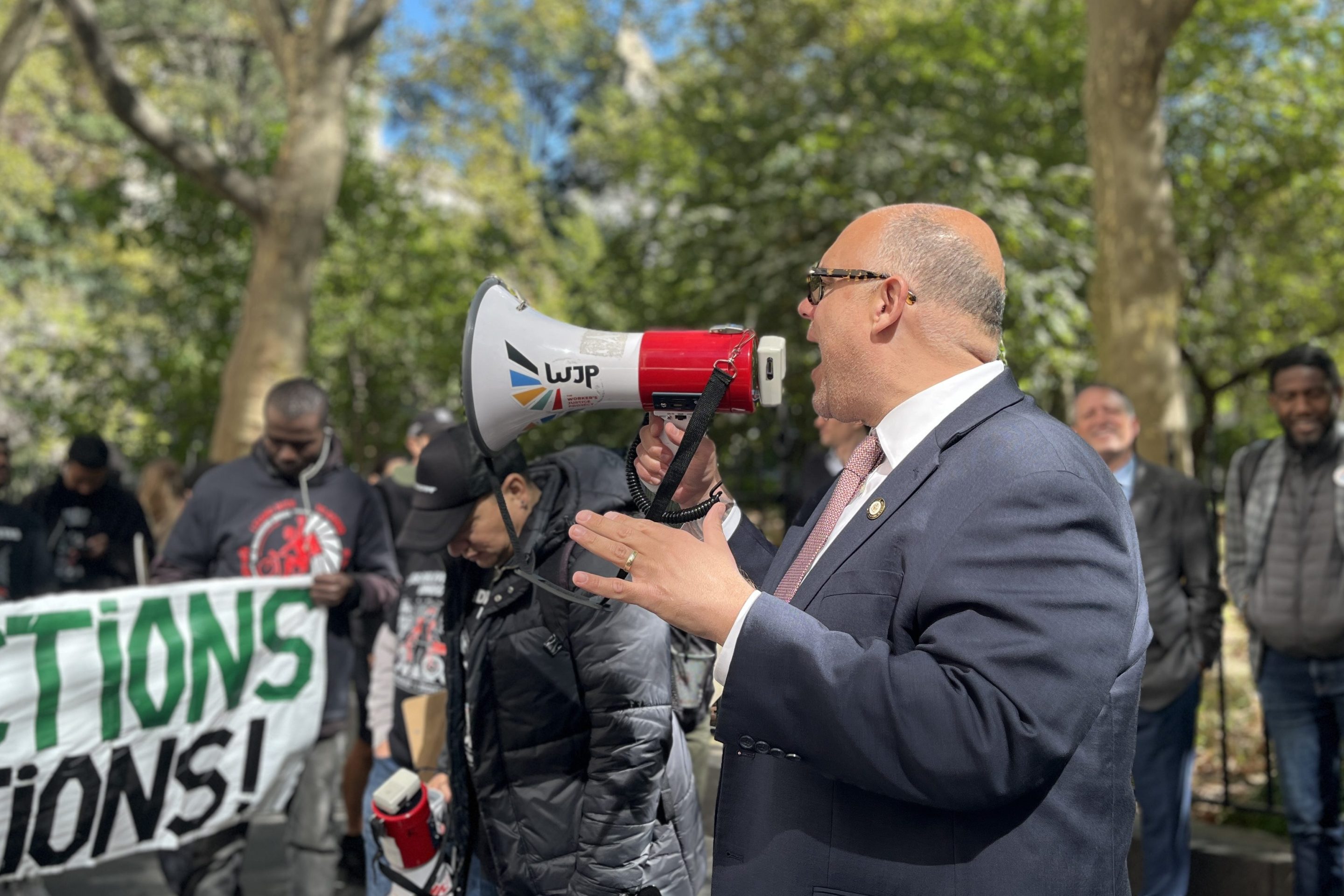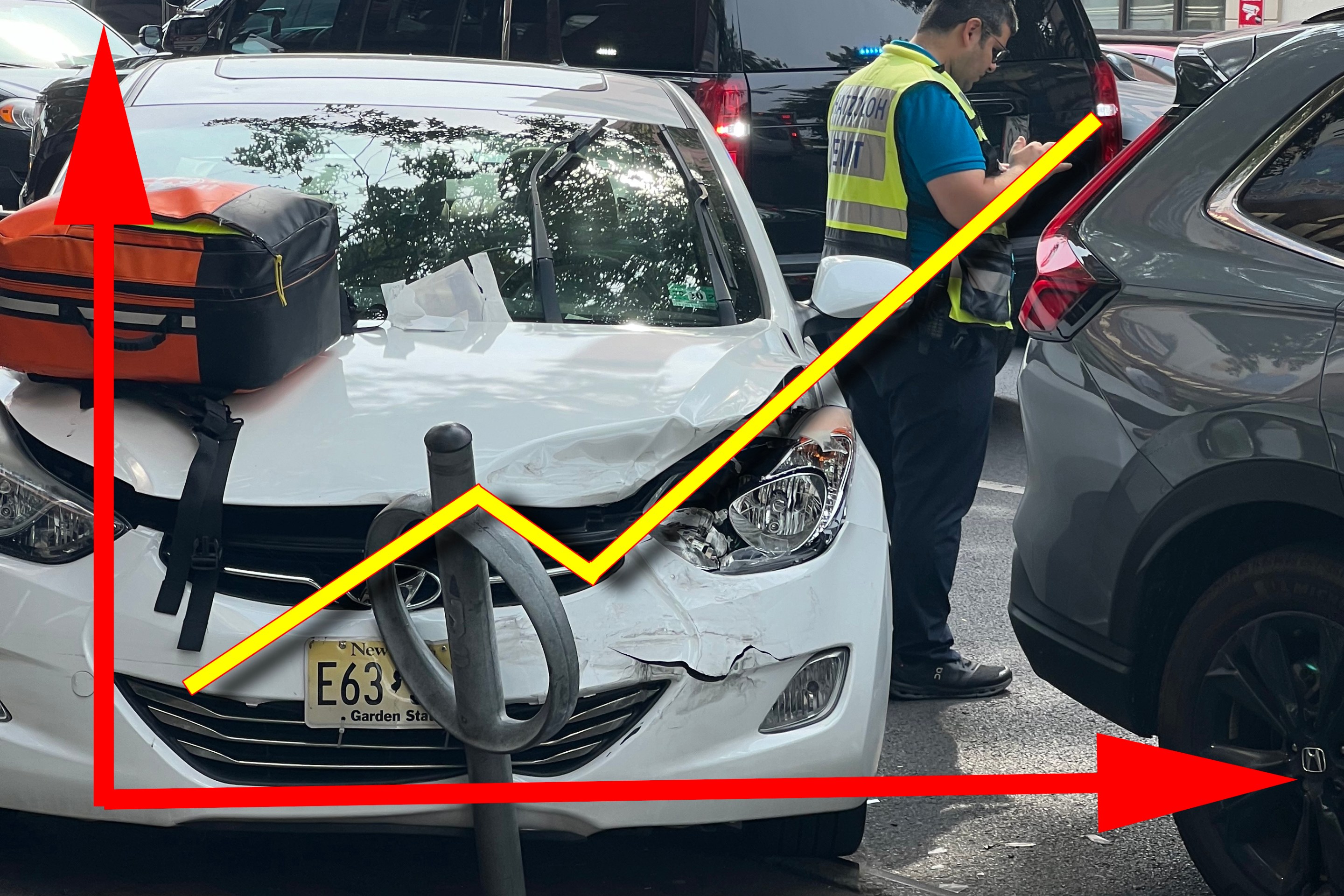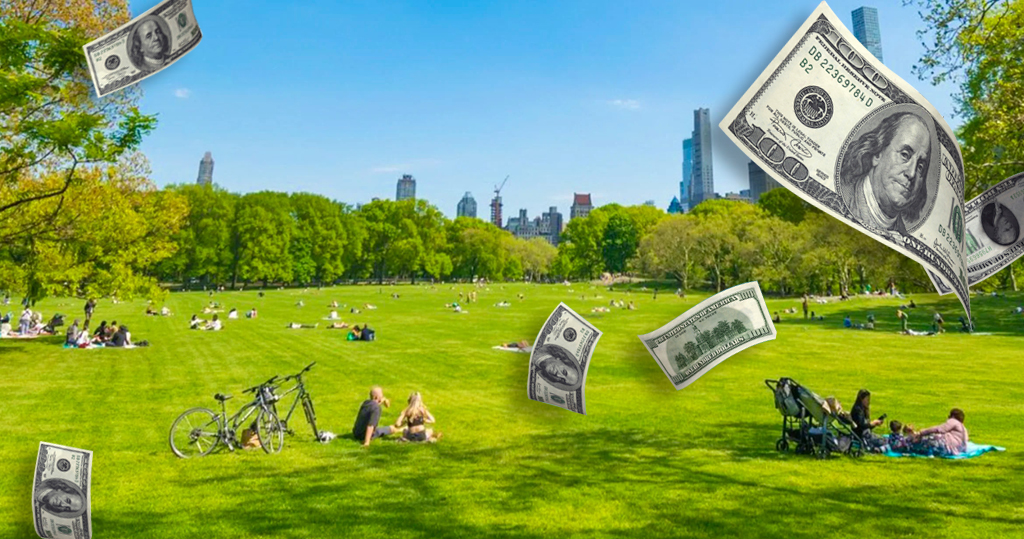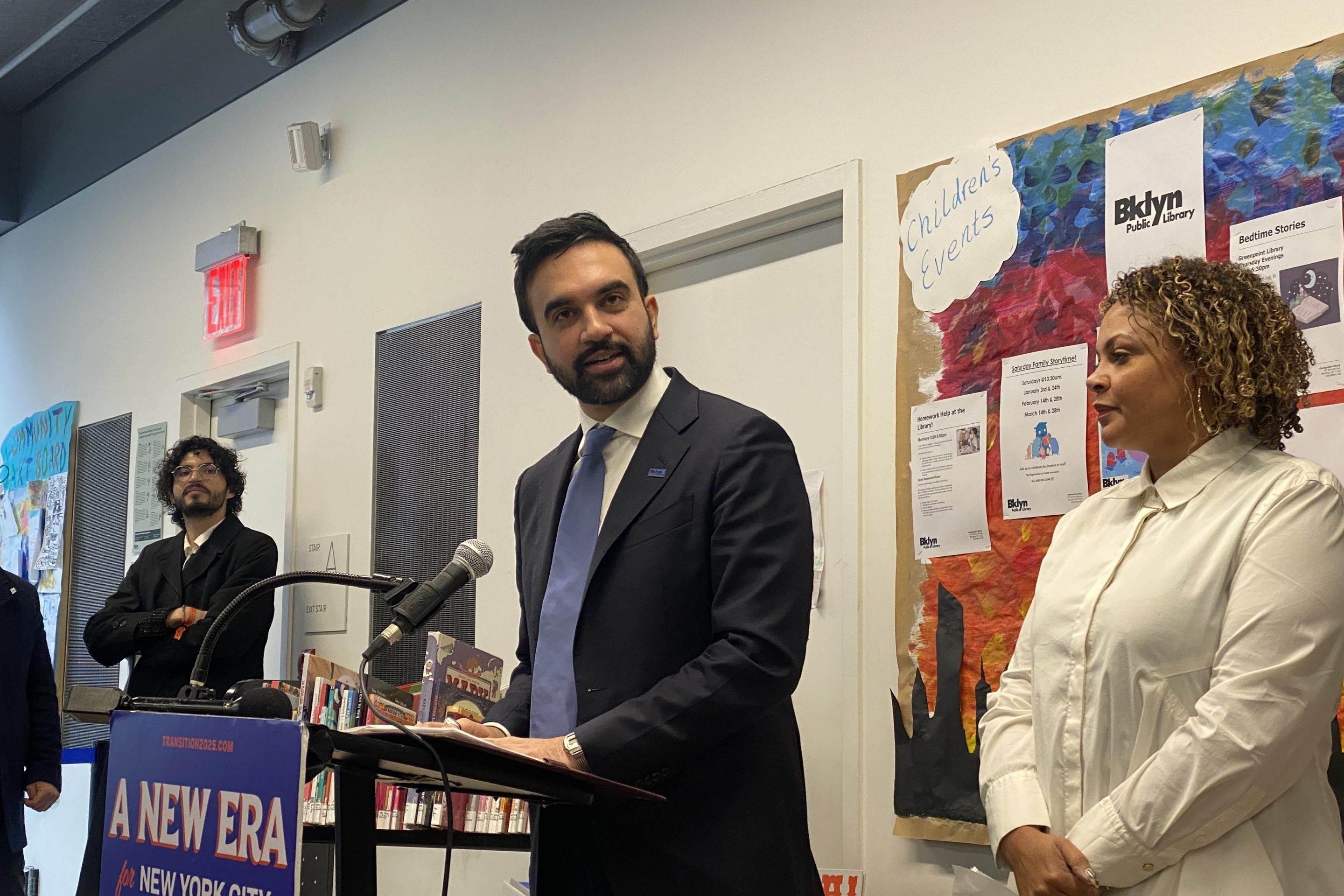Around the same time that Mayor Adams was raising new concerns about the just-announced proposed $15 congestion pricing toll, Gov. Hochul was not only defending it, but bolstering it against all-too-predictable attacks.
At a press conference on Thursday, the governor who inherited congestion pricing from her predecessor and the legislature pushed back on several reporters who tried to suggest that congestion pricing was unfair to drivers.
First, Jay Dow of WPIX11 appeared to accuse Hochul of being out of touch with the concerns of New Yorkers because her "title and salary means that the congestion pricing toll won't be a financial burden" as it will for "a countless number of families who are making well below six figures who are trying to figure out how they're going to fit this into their monthly budget."
Hochul first said that the concerns of drivers motivated her to seek a slightly lower toll than the $23 that had initially been floated. And then said she's quite pleased with the $15 figure because it represents a down payment on repairing the damage caused by 100 years of car culture.
"I also have to protect these families and their health and make sure there's clean air, not just for them today, but for the next generation," she said. "And also, we are blessed in this area to have world-class public transportation and our buses can go faster when there's fewer cars on the streets, our ambulance can get places sooner to save lives, our firefighters can get to a burning building faster when there's not the congestion that is now paralyzing and clogging our streets. So, we are going to be global leaders in this front.
"A few other places have tried it, I believe we will be a model for the nation without creating an undue financial burden because we have public transportation at a very affordable cost for those families that are in need," she added. "We also have hours of operation where the cost will decline dramatically after nine o'clock at night for someone who’s having to work at a hospital and drive themselves home at the end of their shift all the way until five in the morning down to about $3.75.
"But what we also have to do is make sure our air is clean, our transit is invested in. This helps me get the Interborough Express, which will help people who work in the outer boroughs, who don't come into Manhattan, also help with the Second Avenue Subway, opening up transit deserts in Harlem and the Bronx.
"So, people can have access to public transportation to the best paying jobs that we have in the region right here in Manhattan. I know there's going to be an impact, but we have to also deal with the larger picture, protecting and cleaning up our environment, protecting the quality of air, protecting mobility on our streets and also protecting our financial stability of the MTA because without that, it all collapses."
Next, Dow tried a different approach, asking Hochul what she would "say to the drivers who have no choice but to drive in," even though there are just 5,200 New Yorkers who drive to the central business district from transit deserts, as Streetsblog has reported.
"Original plans were every time you go in and out, you could end up having to pay upwards of $23," she said. "Those numbers would have been significantly higher. The numbers came down. It's only one trip a day.
"And truly to park in this city as well is already expensive. I know people try very hard to go to a Park and Ride, try to find the alternatives to take the incredible system we have all the way from the far reaching suburbs of Long Island and the Hudson Valley Westchester, as well as the subway system that literally is almost on every corner, there's accessibility.
"So, we have a gift that other areas do not have. This would not work in many other parts of the country. We're going to do it here, we're going to do it successfully, and we'll have the resources to make sure we keep investing in that lifeline of our region."
Correction: An earlier version of this story misidentified a reporter who asked a question at the presser.
